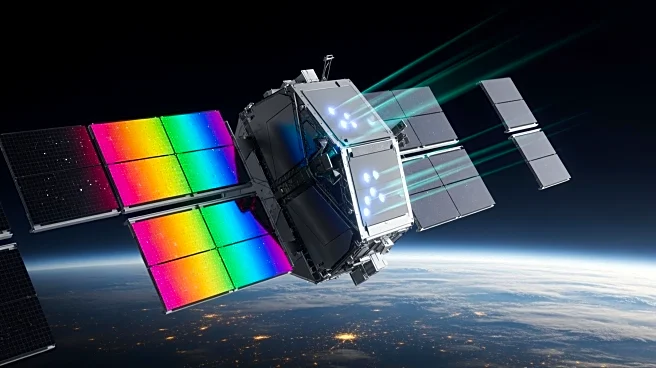What's Happening?
World leaders are convening at the United Nations General Assembly during a period marked by significant global conflicts and challenges. The assembly, which includes representatives from about 150 member nations, is focusing on issues such as the ongoing wars in Gaza and Ukraine, climate change, and the rapid advancement of technology. Secretary-General Antonio Guterres emphasized the need for international cooperation, highlighting the strain on global collaboration. The assembly is also addressing the Israeli-Palestinian conflict, with a high-level meeting co-chaired by France and Saudi Arabia discussing a two-state solution. The Trump administration's refusal to grant a visa to Palestinian President Mahmoud Abbas has led to a resolution allowing him to speak via video. Additionally, the UN is facing major funding and staff cuts due to reduced U.S. contributions.
Why It's Important?
The UN General Assembly's discussions are crucial as they address pressing global issues that affect international peace and security. The focus on conflicts in Gaza and Ukraine, as well as climate change, underscores the urgent need for solutions to prevent further humanitarian crises. The funding cuts to the UN's budget highlight the challenges in maintaining its operations and effectiveness in peacekeeping and humanitarian efforts. The assembly's decisions could influence international policies and cooperation, impacting millions worldwide. The recognition of Palestine by additional countries could shift diplomatic dynamics in the Middle East.
What's Next?
The assembly will continue to address various global issues, including climate change and conflicts in Sudan and Haiti. The Security Council is expected to meet on Gaza and Ukraine, potentially influencing future diplomatic and military actions. The UN's efforts to reform and adapt to current global challenges will be crucial in maintaining its relevance and effectiveness. The outcome of these discussions could lead to new international agreements and collaborations.
Beyond the Headlines
The UN's funding challenges raise ethical questions about the responsibility of member nations to support international peacekeeping and humanitarian efforts. The assembly's focus on gender equality and poverty reduction highlights long-term social and economic goals that require sustained commitment from global leaders. The geopolitical tensions surrounding the Israeli-Palestinian conflict and the recognition of Palestine could lead to shifts in alliances and regional stability.










